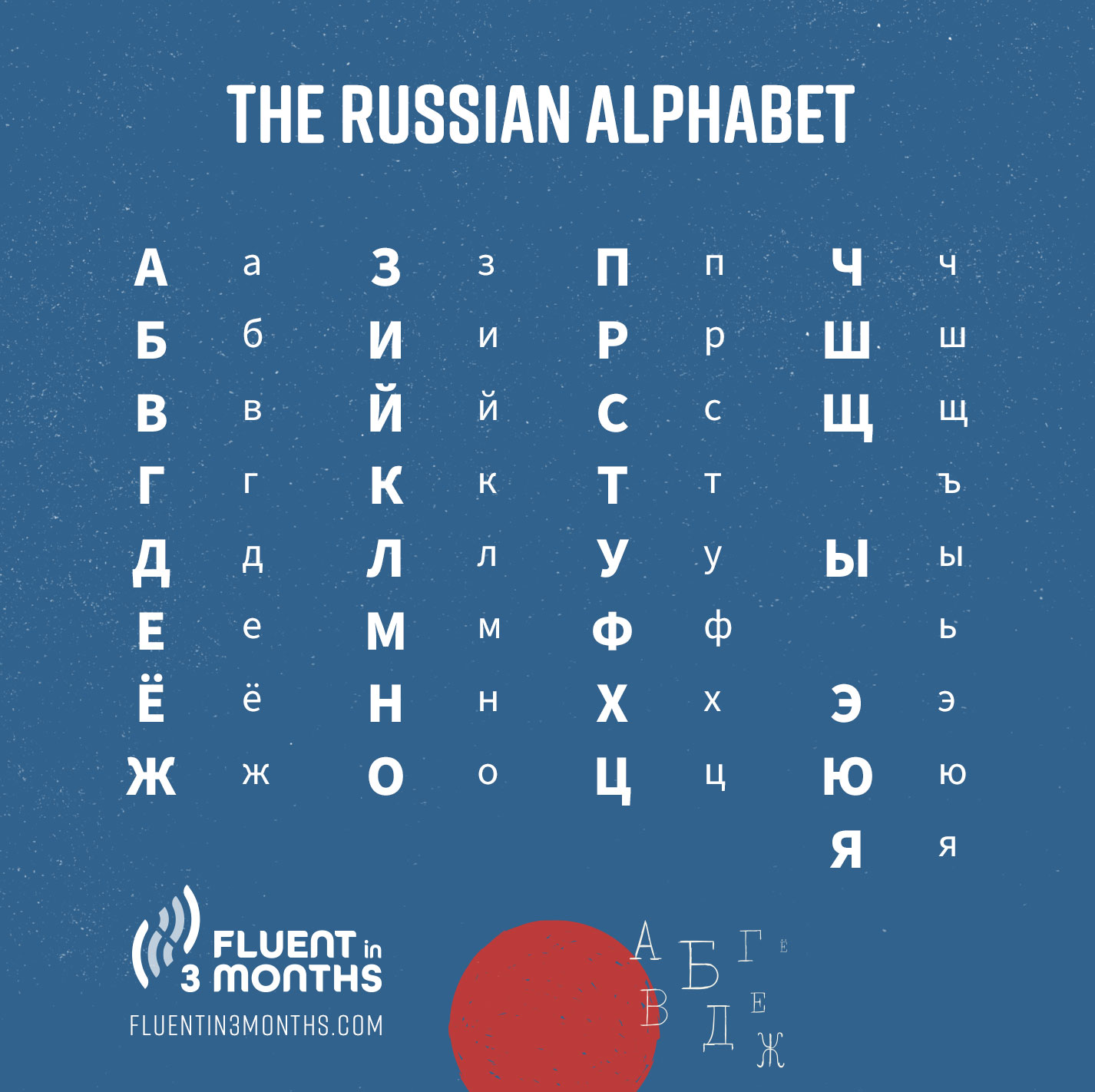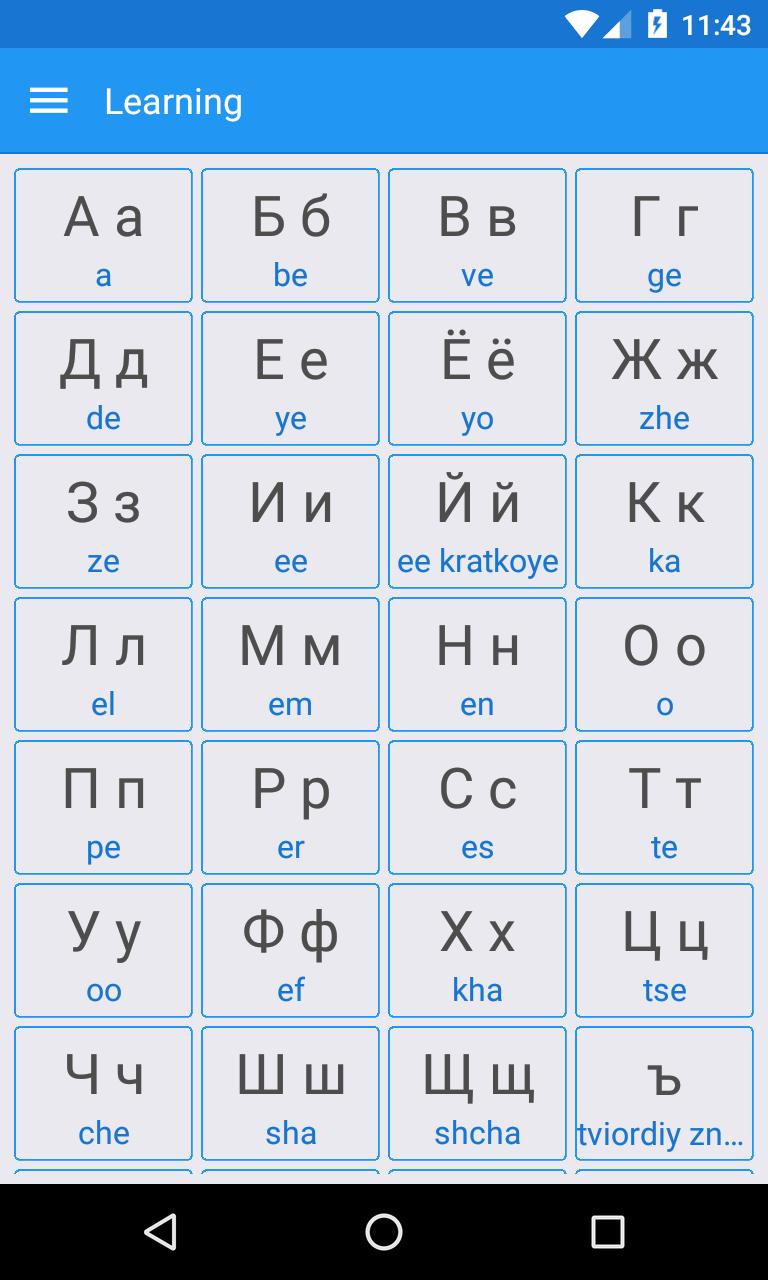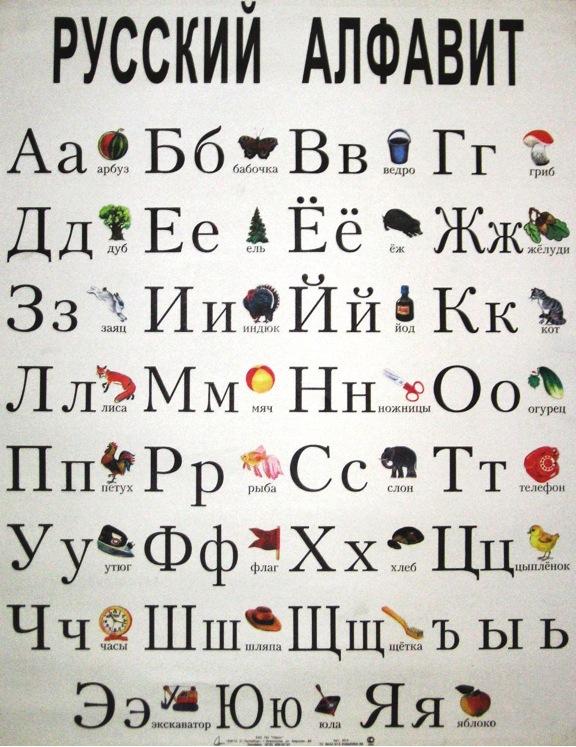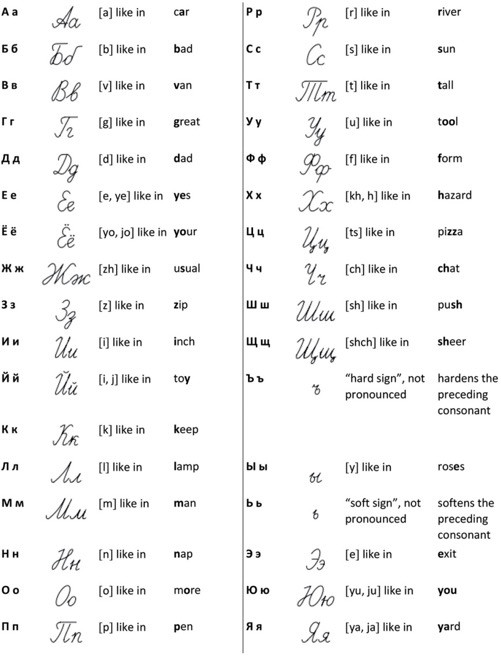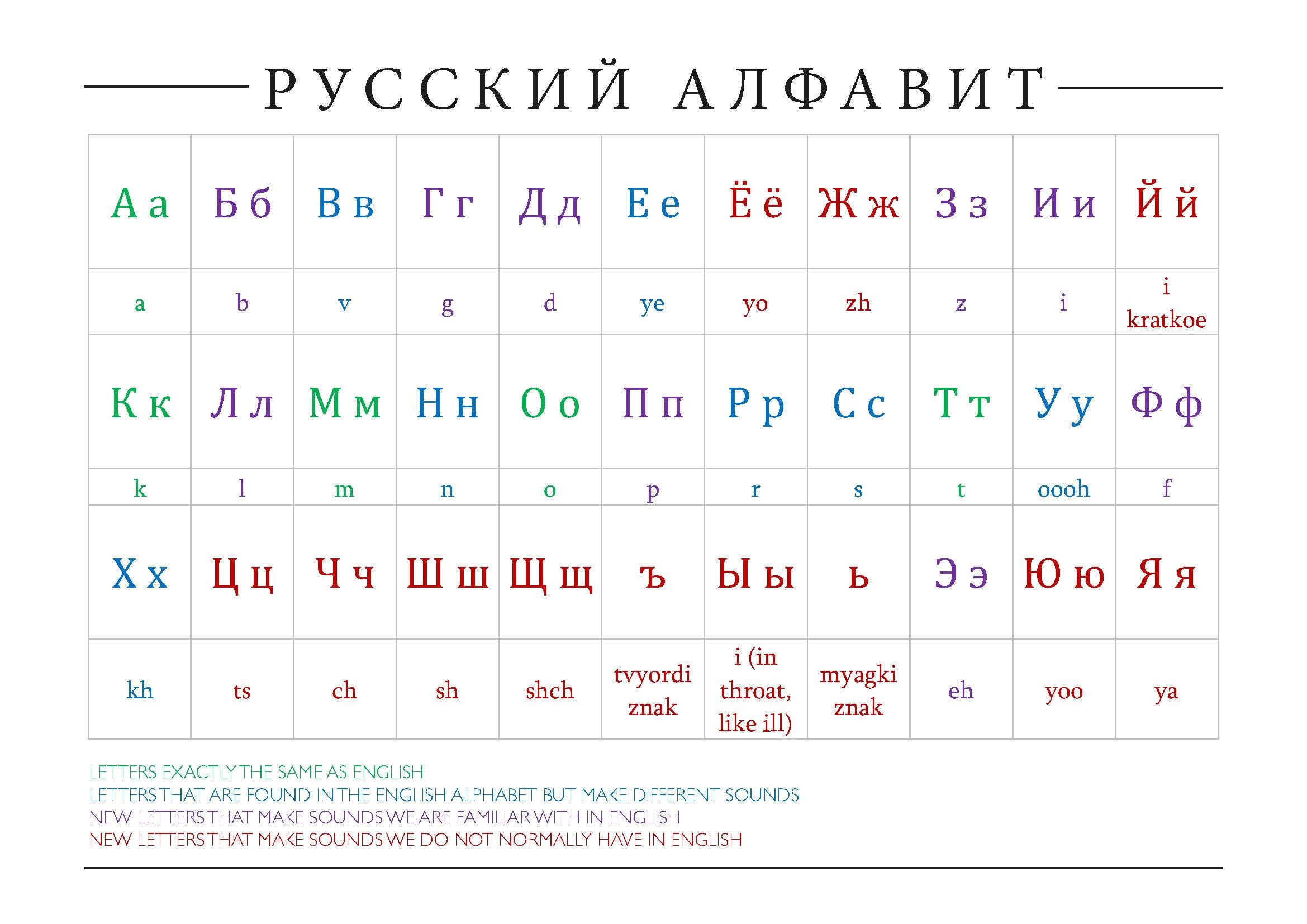Learn Russian Letters - Russian vowel letters are often presented in pairs. Russian is an eastern slavonic language closely related to ukrainian and belorussian with about 277 million speakers in russia. Web there are 33 letters in the russian alphabet: Twenty consonants ( б , в , г , д , ж , з , к , л , м , н , п , р , с , т , ф , х , ц , ч , ш , щ ), ten vowels ( а , е , ё , и , о , у , ы , э , ю , я ), a semivowel / consonant ( й ), and two. Two different letters in each pair have one common vowel sound: Web 10 russian vowel letters indicate just 6 vowel sounds. 10 vowels, 21 consonants, and 2 signs (ь, ъ). This principle means that most phonemes (sounds that convey meaning) are represented by their own. Web this guide will show you all 33 russian letters, how they're pronounced and how you can learn them well. Web the modern russian alphabet consists of 33 letters:
Web there are 33 letters in the russian alphabet: 10 vowels, 21 consonants, and 2 signs (ь, ъ). This principle means that most phonemes (sounds that convey meaning) are represented by their own. Web this guide will show you all 33 russian letters, how they're pronounced and how you can learn them well. Practice with audio for each russian letter plus additional video resources! Two different letters in each pair have one common vowel sound: Web 10 russian vowel letters indicate just 6 vowel sounds. Web the russian alphabet is relatively easy to learn thanks to its principle of one letter per sound. Twenty consonants ( б , в , г , д , ж , з , к , л , м , н , п , р , с , т , ф , х , ц , ч , ш , щ ), ten vowels ( а , е , ё , и , о , у , ы , э , ю , я ), a semivowel / consonant ( й ), and two. Russian is an eastern slavonic language closely related to ukrainian and belorussian with about 277 million speakers in russia.
Web there are 33 letters in the russian alphabet: Web the russian alphabet is relatively easy to learn thanks to its principle of one letter per sound. This principle means that most phonemes (sounds that convey meaning) are represented by their own. Russian is an eastern slavonic language closely related to ukrainian and belorussian with about 277 million speakers in russia. Russian vowel letters are often presented in pairs. 10 vowels, 21 consonants, and 2 signs (ь, ъ). Two different letters in each pair have one common vowel sound: Web the modern russian alphabet consists of 33 letters: Web this guide will show you all 33 russian letters, how they're pronounced and how you can learn them well. Practice with audio for each russian letter plus additional video resources!
Learn the Russian Alphabet How to Quickly Master the Cyrillic Alphabet
Web the russian alphabet is relatively easy to learn thanks to its principle of one letter per sound. This principle means that most phonemes (sounds that convey meaning) are represented by their own. Practice with audio for each russian letter plus additional video resources! Web this guide will show you all 33 russian letters, how they're pronounced and how you.
Russian Alphabet Flashcards
Russian is an eastern slavonic language closely related to ukrainian and belorussian with about 277 million speakers in russia. This principle means that most phonemes (sounds that convey meaning) are represented by their own. Twenty consonants ( б , в , г , д , ж , з , к , л , м , н , п , р.
Image result for russian alphabet flashcards Learn russian alphabet
10 vowels, 21 consonants, and 2 signs (ь, ъ). Web 10 russian vowel letters indicate just 6 vowel sounds. Web this guide will show you all 33 russian letters, how they're pronounced and how you can learn them well. Web the modern russian alphabet consists of 33 letters: Two different letters in each pair have one common vowel sound:
Russian Alphabet, Russian Letters Writing for Android APK Download
Web this guide will show you all 33 russian letters, how they're pronounced and how you can learn them well. This principle means that most phonemes (sounds that convey meaning) are represented by their own. Web 10 russian vowel letters indicate just 6 vowel sounds. Practice with audio for each russian letter plus additional video resources! 10 vowels, 21 consonants,.
GitHub bccharts/russianalphabet Russian alphabet chart
Web this guide will show you all 33 russian letters, how they're pronounced and how you can learn them well. Practice with audio for each russian letter plus additional video resources! Web the modern russian alphabet consists of 33 letters: Web there are 33 letters in the russian alphabet: Twenty consonants ( б , в , г , д ,.
Speak Russian Now Learn Russian alphabet with us!
Practice with audio for each russian letter plus additional video resources! Web this guide will show you all 33 russian letters, how they're pronounced and how you can learn them well. Russian is an eastern slavonic language closely related to ukrainian and belorussian with about 277 million speakers in russia. Web 10 russian vowel letters indicate just 6 vowel sounds..
It is officially the start of russianlanguageday and we would like to
Web there are 33 letters in the russian alphabet: Practice with audio for each russian letter plus additional video resources! Twenty consonants ( б , в , г , д , ж , з , к , л , м , н , п , р , с , т , ф , х , ц , ч , ш.
Russian Alphabet Learn to Read Russian Letters Learn Russian Online
10 vowels, 21 consonants, and 2 signs (ь, ъ). Web 10 russian vowel letters indicate just 6 vowel sounds. Web there are 33 letters in the russian alphabet: This principle means that most phonemes (sounds that convey meaning) are represented by their own. Russian is an eastern slavonic language closely related to ukrainian and belorussian with about 277 million speakers.
Russian Alphabet Chart Color Coded Etsy
Two different letters in each pair have one common vowel sound: Web there are 33 letters in the russian alphabet: Russian is an eastern slavonic language closely related to ukrainian and belorussian with about 277 million speakers in russia. Web the modern russian alphabet consists of 33 letters: Russian vowel letters are often presented in pairs.
Twenty Consonants ( Б , В , Г , Д , Ж , З , К , Л , М , Н , П , Р , С , Т , Ф , Х , Ц , Ч , Ш , Щ ), Ten Vowels ( А , Е , Ё , И , О , У , Ы , Э , Ю , Я ), A Semivowel / Consonant ( Й ), And Two.
Russian vowel letters are often presented in pairs. Web this guide will show you all 33 russian letters, how they're pronounced and how you can learn them well. Practice with audio for each russian letter plus additional video resources! 10 vowels, 21 consonants, and 2 signs (ь, ъ).
Web There Are 33 Letters In The Russian Alphabet:
Web the modern russian alphabet consists of 33 letters: Web the russian alphabet is relatively easy to learn thanks to its principle of one letter per sound. Russian is an eastern slavonic language closely related to ukrainian and belorussian with about 277 million speakers in russia. Web 10 russian vowel letters indicate just 6 vowel sounds.
Two Different Letters In Each Pair Have One Common Vowel Sound:
This principle means that most phonemes (sounds that convey meaning) are represented by their own.
